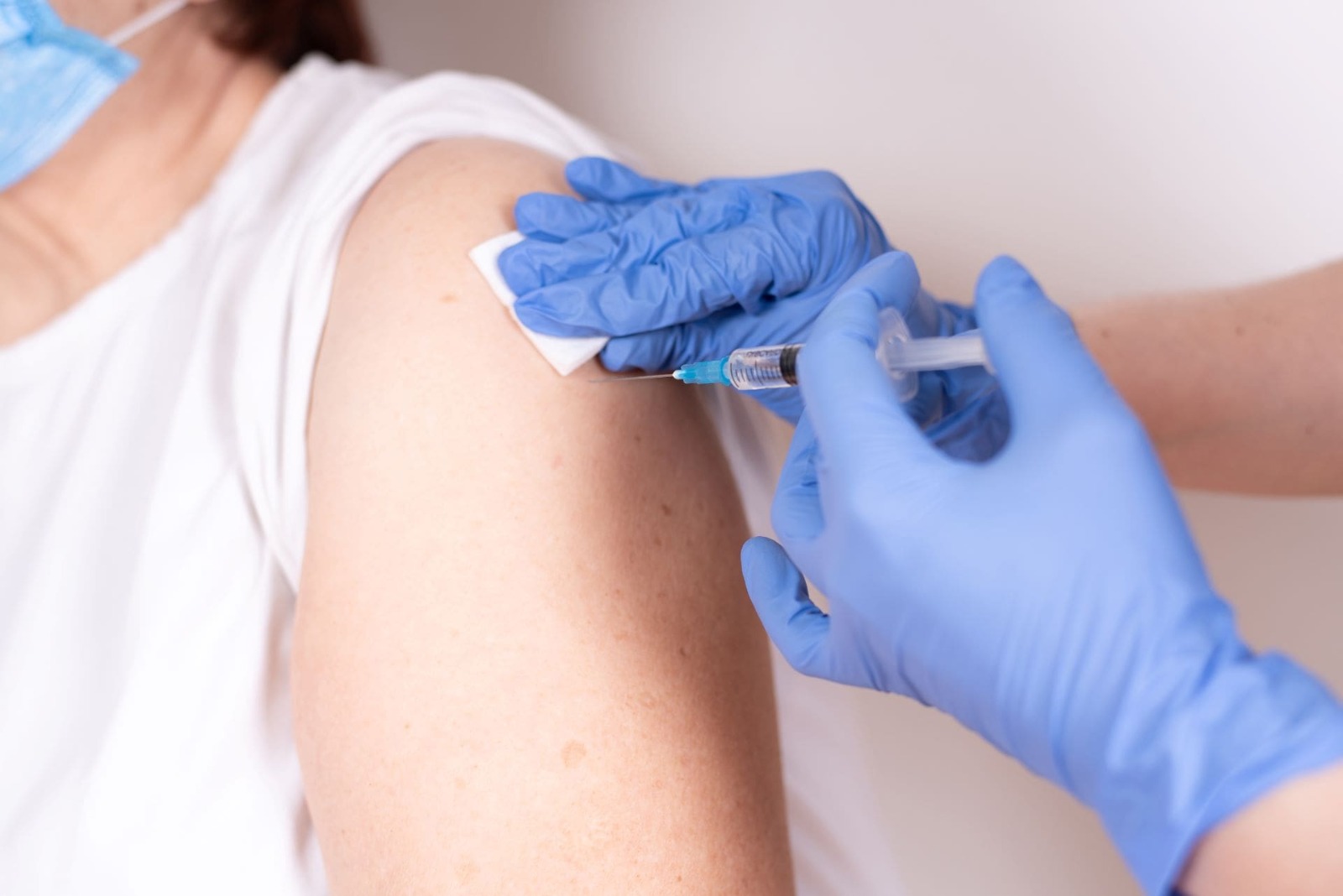
Vaccinations for adults Living in Singapore

FEBRUARY 23, 2022
Vaccinations for adults living in Singapore
If you are preparing to relocate to Singapore or if you are already living in Singapore, do not forget to receive all the necessary and recommended vaccinations. You may think vaccinations are mainly for children and few adults may think of going for any vaccinations at all. A common myth among Singaporeans is that vaccination is mainly for travellers. This is true for those who travel a lot around the South East Asia region but there are also certain vaccinations that are deemed important to have whilst living in Singapore. Unlike countries such as the United States, Europe and Australia, Singapore does not currently offer an official adult immunisation schedule.
Why do some adults need vaccines?
Some adults assume that the vaccines they received in childhood will protect them for the rest of their lives. This is partly true but it is important to remember that:
- Some adults were not vaccinated or only partly vaccinated as children.
- Newer vaccines are now available which were not when these adults were children.
- Immunity can wane over time.
- As we age, we become more susceptible to serious diseases caused by common infections. (e.g. influenza and pneumococcus.)
The “routine” adult vaccinations are Influenza, pneumococcal infection, diphtheria, tetanus, pertussis, varicella zoster, human papillomavirus, measles, mumps and rubella. If you travel a lot around the South East Asia region, you may also wish to consider vaccinating for Hepatitis A, Hepatitis B and typhoid.
Influenza (Flu) Vaccine
There is often a misconception of influenza being a mild disease. Influenza is caused by the highly contagious influenza virus: type A, B or C. Influenza A viruses are the most pathogenic and account for more severe illnesses and complications. These complications can include inflammation of the heart (myocarditis), brain (encephalitis) or muscle (myositis, rhabdomyolysis) and even multi-organ failure (lungs and kidneys).
The flu vaccine is recommended for all adults annually. Vaccination is especially important for young children, adults aged 65 years and older, pregnant women, people with weakened immune system, those who work in a healthcare setting or care for someone at high risk of flu-related complications including people with certain chronic medical conditions eg. diabetes, chronic lung disease, etc.
Influenza vaccination has been shown to be clinically effective in reducing the rate of hospital admissions as well as reducing the incidence of influenza-related mortality in the older population. The traditional “influenza seasons” are from April to July and November to January when there is a peak in reported cases.
Pneumococcal Pneumonia
This is caused by the bacterium Streptococcus pneumonia and accounts for approximately 50 per cent of pneumonia cases in hospital. The bacteria can attack different body systems and can result in pneumonia, meningitis, bacteraemia and other life-threatening conditions. Pneumococcus bacteria can also cause middle ear and sinus infections.
The vaccine is recommended for those 65 and above, those with an underlying chronic illness or a weakened immune system, patients who have had a splenectomy or live in long term care facilities.
There are currently two types of pneumococcal vaccines available in Singapore for use in adults. Please consult with your doctor for further advice on this.
Tetanus, diphtheria and pertussis
Diphtheria is a serious bacterial infection that affects the mucous membrane of the nose and throat. The bacteria can release a dangerous substance (toxin) into the bloodstream that can damage organs including the heart, brain and kidneys. Tetanus infection causes serious, painful spasms and stiffness in all muscles of the body. It can cause locking of the jaw resulting in difficulties in opening the mouth, swallowing and breathing.
Pertussis (whooping cough) is a highly contagious respiratory tract infection. The infection causes violent, uncontrollable coughing making it hard to breath, eat and drink. After the primary series of doses in childhood, booster vaccines for tetanus, diphtheria and pertussis should be administered once every ten years (pertussis has become a re-emerging infection recently because of waning immunity in adults) Vaccination is especially important if you have a wound that is likely to become infected or you have close contact with infants. Preteens and teens should get a dose to boost their immunity between the ages of 11 and 12 years. Pregnant ladies should also get a booster dose of the vaccines during the third trimester of every pregnancy to help protect the baby from pertussis in the first few months of life
Varicella zoster (Chickenpox)
The varicella zoster vaccine is given if you did not have chickenpox as a child or adolescent, you are not too sure if you have had chickenpox, or if you are considering pregnancy and don’t know if you are immune to chickenpox. Vaccination reduces the risk of chickenpox by 90 per cent and the risk of severe or fatal complications (pneumonia and encephalitis) by more than 98 per cent. Even those who have been vaccinated, can still catch chicken pox (the vaccine is 90 percent protective). However, the disease is a much milder form with a lower incidence of fever and fewer blisters and scarring.
The recommendation is two doses for all adults (if this was not done in childhood) with at least a four weeks interval after the first dose.
Measles, mumps and rubella
Measles virus can lead to ear infection, pneumonia, seizures and encephalitis (inflammation of the brain) Mumps virus can lead to deafness, meningitis (infection of the brain and spinal cord covering), encephalitis, and painful swelling of the testicles or ovaries Rubella virus, if caught during pregnancy, can have serious implications on the baby resulting deafness, heart abnormalities and brain damage. The MMR vaccine can protect children and adults from all three of these potentially serious diseases. In Singapore, two doses of MMR vaccine have been made compulsory since 1998. You can get the first dose of MMR at any time and repeat with a second dose within at least four weeks.
Human papillomavirus (HPV)
Human papillomavirus (HPV) is a virus that causes precancerous and cancerous lesions on the cervix. It can also cause cancers of the vagina and vulva in women. In men, it can cause penile cancer, cancer of the anus and oral cavity as well as genital warts. Consider the HPV vaccine if you are a woman aged 26 and under and did not receive the vaccination during adolescence. Men aged 26 and under can also consider vaccinating against HPV. For men, the HPV vaccine can help prevent genital warts and reduces the transmission of the virus that causes cervical cancer in women. The recommended three doses over a six months period.
Herpes zoster (Shingles)
Shingles is a painful rash that can develop on one side of the body, face or torso. The rash forms blisters that scab over in 7-10days and clears up in 2-4 weeks. For some people the pain can last for months after the rash has disappeared. This is called post-herpetic neuralgia (PHN) and is the most common complication of shingles. The shingles vaccine is recommended for people aged 60 years and older. It reduces the risk of developing shingles by 51% and PHN by 67%. It is given as a single shot.
Other vaccinations to consider:
Hepatitis A and B vaccines
Hepatitis A causes an acute inflammatory liver condition. The disease is often spread through contaminated food.
Hepatitis B virus can cause an acute infection of the liver. This is a blood borne disease and can be very serious. The virus stays in the liver in some people for the rest of their lives and can result in severe liver disease including liver cancer.
Routine childhood Hepatitis B vaccine was incorporated into the Singapore National Childhood Immunisation programme since 1987. Two doses of Hepatitis A vaccine are given over a six month period. For Hepatitis B, three doses of the vaccine are given over a six month period.
Typhoid Fever
Typhoid fever is a systemic infection caused by the Gram-negative bacillus Salmonella typhi. Typhoid is spread by the faecal-oral route and is associated with poor sanitation and ineffective personal hygiene. Typhoid is endemic to areas of poor sanitation – e.g. Africa, Southeast Asia, South Asia, Central and Southern America. Remember to complete your vaccination at least one week before you travel so that the vaccine has time to take effect. Typhoid vaccination loses effectiveness after three years so re-vaccination with a booster dose is recommended every three years.
Vaccination provides significant protection against infectious diseases and their complications that can cause long-term illness, hospitalisation and even death. The specific immunisations you need as an adult are determined by factors such as your age, lifestyle, occupation, high-risk conditions, types and locations of travel and previous immunisation history.
Please speak to your doctor if you have any further queries or concerns regarding vaccination in adults.
Vaccinations for adults living in Singapore
If you are preparing to relocate to Singapore or if you are already living in Singapore, do not forget to receive all the necessary and recommended vaccinations. You may think vaccinations are mainly for children and few adults may think of going for any vaccinations at all. A common myth among Singaporeans is that vaccination is mainly for travellers. This is true for those who travel a lot around the South East Asia region but there are also certain vaccinations that are deemed important to have whilst living in Singapore. Unlike countries such as the United States, Europe and Australia, Singapore does not currently offer an official adult immunisation schedule.
Why do some adults need vaccines?
Some adults assume that the vaccines they received in childhood will protect them for the rest of their lives. This is partly true but it is important to remember that:
- Some adults were not vaccinated or only partly vaccinated as children.
- Newer vaccines are now available which were not when these adults were children.
- Immunity can wane over time.
- As we age, we become more susceptible to serious diseases caused by common infections. (e.g. influenza and pneumococcus.)
The “routine” adult vaccinations are Influenza, pneumococcal infection, diphtheria, tetanus, pertussis, varicella zoster, human papillomavirus, measles, mumps and rubella. If you travel a lot around the South East Asia region, you may also wish to consider vaccinating for Hepatitis A, Hepatitis B and typhoid.
Influenza (Flu) Vaccine
There is often a misconception of influenza being a mild disease. Influenza is caused by the highly contagious influenza virus: type A, B or C. Influenza A viruses are the most pathogenic and account for more severe illnesses and complications. These complications can include inflammation of the heart (myocarditis), brain (encephalitis) or muscle (myositis, rhabdomyolysis) and even multi-organ failure (lungs and kidneys).
The flu vaccine is recommended for all adults annually. Vaccination is especially important for young children, adults aged 65 years and older, pregnant women, people with weakened immune system, those who work in a healthcare setting or care for someone at high risk of flu-related complications including people with certain chronic medical conditions eg. diabetes, chronic lung disease, etc.
Influenza vaccination has been shown to be clinically effective in reducing the rate of hospital admissions as well as reducing the incidence of influenza-related mortality in the older population. The traditional “influenza seasons” are from April to July and November to January when there is a peak in reported cases.
Pneumococcal Pneumonia
This is caused by the bacterium Streptococcus pneumonia and accounts for approximately 50 per cent of pneumonia cases in hospital. The bacteria can attack different body systems and can result in pneumonia, meningitis, bacteraemia and other life-threatening conditions. Pneumococcus bacteria can also cause middle ear and sinus infections.
The vaccine is recommended for those 65 and above, those with an underlying chronic illness or a weakened immune system, patients who have had a splenectomy or live in long term care facilities.
There are currently two types of pneumococcal vaccines available in Singapore for use in adults. Please consult with your doctor for further advice on this.
Tetanus, diphtheria and pertussis
Diphtheria is a serious bacterial infection that affects the mucous membrane of the nose and throat. The bacteria can release a dangerous substance (toxin) into the bloodstream that can damage organs including the heart, brain and kidneys. Tetanus infection causes serious, painful spasms and stiffness in all muscles of the body. It can cause locking of the jaw resulting in difficulties in opening the mouth, swallowing and breathing.
Pertussis (whooping cough) is a highly contagious respiratory tract infection. The infection causes violent, uncontrollable coughing making it hard to breath, eat and drink. After the primary series of doses in childhood, booster vaccines for tetanus, diphtheria and pertussis should be administered once every ten years (pertussis has become a re-emerging infection recently because of waning immunity in adults) Vaccination is especially important if you have a wound that is likely to become infected or you have close contact with infants. Preteens and teens should get a dose to boost their immunity between the ages of 11 and 12 years. Pregnant ladies should also get a booster dose of the vaccines during the third trimester of every pregnancy to help protect the baby from pertussis in the first few months of life
Varicella zoster (Chickenpox)
The varicella zoster vaccine is given if you did not have chickenpox as a child or adolescent, you are not too sure if you have had chickenpox, or if you are considering pregnancy and don’t know if you are immune to chickenpox. Vaccination reduces the risk of chickenpox by 90 per cent and the risk of severe or fatal complications (pneumonia and encephalitis) by more than 98 per cent. Even those who have been vaccinated, can still catch chicken pox (the vaccine is 90 percent protective). However, the disease is a much milder form with a lower incidence of fever and fewer blisters and scarring.
The recommendation is two doses for all adults (if this was not done in childhood) with at least a four weeks interval after the first dose.
Measles, mumps and rubella
Measles virus can lead to ear infection, pneumonia, seizures and encephalitis (inflammation of the brain) Mumps virus can lead to deafness, meningitis (infection of the brain and spinal cord covering), encephalitis, and painful swelling of the testicles or ovaries Rubella virus, if caught during pregnancy, can have serious implications on the baby resulting deafness, heart abnormalities and brain damage. The MMR vaccine can protect children and adults from all three of these potentially serious diseases. In Singapore, two doses of MMR vaccine have been made compulsory since 1998. You can get the first dose of MMR at any time and repeat with a second dose within at least four weeks.
Human papillomavirus (HPV)
Human papillomavirus (HPV) is a virus that causes precancerous and cancerous lesions on the cervix. It can also cause cancers of the vagina and vulva in women. In men, it can cause penile cancer, cancer of the anus and oral cavity as well as genital warts. Consider the HPV vaccine if you are a woman aged 26 and under and did not receive the vaccination during adolescence. Men aged 26 and under can also consider vaccinating against HPV. For men, the HPV vaccine can help prevent genital warts and reduces the transmission of the virus that causes cervical cancer in women. The recommended three doses over a six months period.
Herpes zoster (Shingles)
Shingles is a painful rash that can develop on one side of the body, face or torso. The rash forms blisters that scab over in 7-10days and clears up in 2-4 weeks. For some people the pain can last for months after the rash has disappeared. This is called post-herpetic neuralgia (PHN) and is the most common complication of shingles. The shingles vaccine is recommended for people aged 60 years and older. It reduces the risk of developing shingles by 51% and PHN by 67%. It is given as a single shot.
Other vaccinations to consider:
Hepatitis A and B vaccines
Hepatitis A causes an acute inflammatory liver condition. The disease is often spread through contaminated food.
Hepatitis B virus can cause an acute infection of the liver. This is a blood borne disease and can be very serious. The virus stays in the liver in some people for the rest of their lives and can result in severe liver disease including liver cancer.
Routine childhood Hepatitis B vaccine was incorporated into the Singapore National Childhood Immunisation programme since 1987. Two doses of Hepatitis A vaccine are given over a six month period. For Hepatitis B, three doses of the vaccine are given over a six month period.
Typhoid Fever
Typhoid fever is a systemic infection caused by the Gram-negative bacillus Salmonella typhi. Typhoid is spread by the faecal-oral route and is associated with poor sanitation and ineffective personal hygiene. Typhoid is endemic to areas of poor sanitation – e.g. Africa, Southeast Asia, South Asia, Central and Southern America. Remember to complete your vaccination at least one week before you travel so that the vaccine has time to take effect. Typhoid vaccination loses effectiveness after three years so re-vaccination with a booster dose is recommended every three years.
Vaccination provides significant protection against infectious diseases and their complications that can cause long-term illness, hospitalisation and even death. The specific immunisations you need as an adult are determined by factors such as your age, lifestyle, occupation, high-risk conditions, types and locations of travel and previous immunisation history.
Please speak to your doctor if you have any further queries or concerns regarding vaccination in adults.
Recent Post
-
Understanding Test Items Included in Health Screening
June 05, 2025 -
How To Choose a Health Screening Package
June 05, 2025 -
Heart Screening Singapore: What Is Coronary Artery
June 05, 2025




